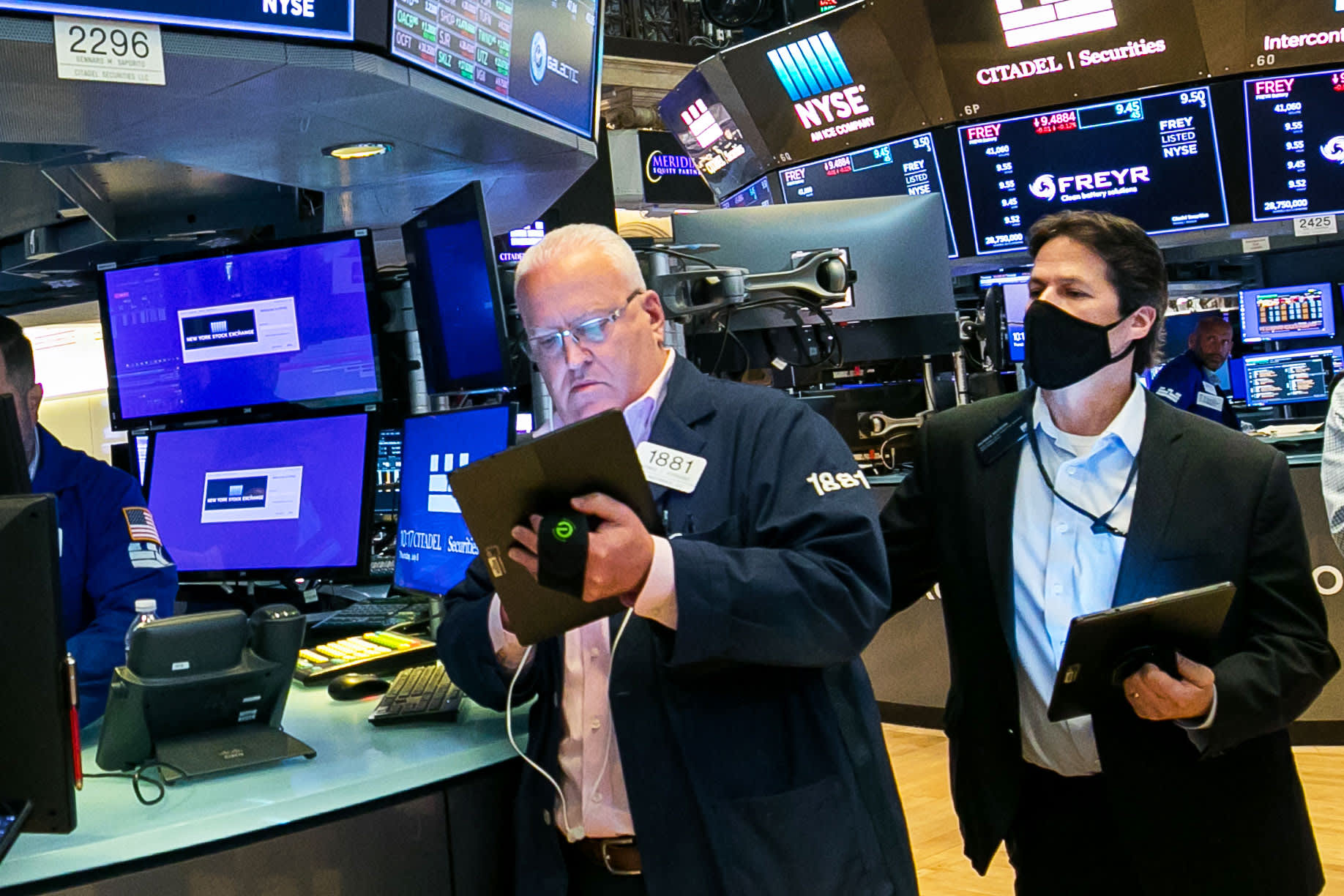
Traders on the floor of the New York Stock Exchange.
Source: NYSE
U.S. stock indexes fell Tuesday as July retail sales declined, another sign the economy may be slowing a bit in the face of a Covid resurgence.
Still, Tuesday’s losses came the Dow Jones Industrial Average and S&P 500 closed at records in the prior session.
The Dow fell around 285 points, or 0.8%. The S&P 500 shed 0.6% and the Nasdaq Composite lost 0.7%.
Retail sales declined 1.1% in July, a steeper drop than the 0.3% dip expected by economists surveyed by Dow Jones. The Census Bureau revised June’s reading to a 0.7% jump.
Home Depot fell about 5% after reporting second-quarter results, weighing on the Dow. While quarterly earnings topped estimates, same-store sales rose 4.5% in the period, below the 5% consensus estimate of analysts polled by StreetAccount. U.S. same store sales increased by just 3.4%.
Walmart shares inched higher after second-quarter earnings topped estimates. The retailer gained ground in groceries and reported a strong start to the back-to-school season.
Elsewhere, technology names trended lower. Facebook shares retreated about 1% and Nvidia shares declined roughly 1.5%.
Meanwhile, healthcare shares saw some strength with United Health, Merck and Johnson & Johnson trading in the green.
The Dow and the S&P 500 closed at record highs Monday in their fifth straight positive session. The S&P 500’s move during Monday’s session marked a milestone as the benchmark index doubled from its pandemic closing low on March 23, 2020. This marks the fastest bull-market doubling since World War II, according to calculations from CNBC.
As stocks have recovered from their pandemic lows at a blistering rate, and some on Wall Street see more gains ahead.
“We remain bullish on stocks (particularly cyclicals/value) thanks to a strong earnings season, signs of receding risk from the delta variant, and normalization of bond-equity correlation,” JPMorgan wrote in a note to clients Monday.
Monday’s action came despite disappointing economic data from China. The nation’s retail sales were up 8.5% year over year during July, which was short of the 11.5% jump economists polled by Reuters were expecting.
Goldman Sachs noted that the impacts would likely be localized.
“Rising COVID case growth is likely fueling the slowdown seen in China and the decline in manufacturing sentiment, but the economic impact — at least in the US and Europe — is unlikely to be big,” the firm said Monday in a note to clients.
Become a smarter investor with CNBC Pro.
Get stock picks, analyst calls, exclusive interviews and access to CNBC TV.
Sign up to start a free trial today




